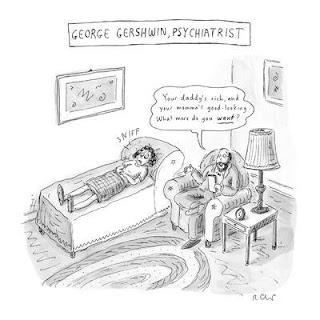There are countless challenges to having a disease. I have the most unusual diseases known to humankind and my strife is intense, grave, tireless where you don't have to worry only about healing because recovery is a tough process that takes time and patience leaving scars behind but you have to bother about financial demands to get a proper diagnosis and the desired treatment and surveillance.
The name of my diseases sounds thrilling but when you start explaining, they resemble deadly babble where the prognosis is like a psychic scream.
I was diagnosed with a rare disease von Hippel-Lindau or VHL. It is a genetic form of cancer. VHL patients battle a series of tumors throughout their life. VHL may occur in up to 10 organs of the body also there is a possibility of neuroendocrine tumors.
My story is of riches to rags, I was born into a well-to-do family but those lifeless relatives...when I needed them most…the foxy ones conspired and sold our ancestral home.
My woe is I am not Benjamin Button with a rare aging ailment that makes the baby born begin life as an old man and proceed to age backward.
Itching and scratching diseases get full attention of our great countrymen whereas my cancer is beyond comprehension. On anti- itching drug shall all focus my attention.
I would have never been chosen because it's tough to realize "Everything is inside". My missing liver which has been stitched back with a replacement; my left kidney, part of which is gone forever; my brain which has been burnt by radiation beams. resulting in an ischemic brain and the tumours scattered inside sparkling like a star punched sky yet the "little grey cells" had worked out an exceptional detective book during lancinating pain with one-eyed vision and typing with the index finger of the right hand because after the hand got palsy and was treated with high-dose steroids the hand doesn't work like before and the left had after recovering from paralysis didn't get back the sense of touch and both halves of brain lost coordination and refuse to work together.
Mansi Aggarwal shouted I ought to die right now or else who will account for it my brother ArIndam Bhattacharjee ( cinematographer) if he falls ill. She forgot before marriage he was my ‘coochie coochie coo’ brother. Lust and luxury has eaten his emotions.
Saying that " Bitch you die right now" she bashed me while I was eating breakfast and without a mask.The fatso hit me during cancer.
This is not a family dispute. It is violence against a woman who fought cancer throughout life and is very serious with brain tumours and metastatic neuroendocrine issues.
Doesn't he realise a rich wife changes all responsibilities.
Irrfan Khan died of a neuroendocrine tumour (NET) — the 'forgotten cancer' —
The cancer is rare and often misdiagnosed as other common ailments like IBS, asthma or anxiety.
According to the Neuroendocrine Tumour Research Foundation, NET is becoming more common but more than half the patients suffer from late diagnosis.
A neuroendocrine tumour (NET), simply put, is an umbrella term for a class of rare cancers. Not only is it difficult to diagnose, but it's also slow-growing and complex.
Neuroendocrine neoplasms are fairly rare diseases, but their incidence and prevalence have increased substantially in recent decades. The majority of neuroendocrine tumors overexpress somatostatin receptors (SSTRs), which are targeted for imaging and treatment.
Somatostatin receptor (SSTR) analogues, which are used for imaging of neuroendocrine tumors (NETs), can also be used for therapy by replacing the imaging isotope with a therapeutic isotope. This general field is referred to as peptide receptor radionuclide therapy (PRRT). PRRT is not specific to NETs, but NET therapy.
Neuroendocrine cells are found all over the body — especially in the small bowel, pancreas, stomach, the adrenal gland, lungs and thyroid. As and when these cells receive signals from the nervous system, they release the corresponding hormones.Symptoms of NET often mimic other common ailments — like irritable bowel syndrome (IBS), asthma, flushing or redding of the skin, and unexplained anxiety.
Because of this patients are often misdiagnosed and NET has been labelled the 'forgotten cancer'.
A neuroendocrine tumour is a tumour that forms within those cells. What makes them complex is that their behaviour is difficult to predict.
More than half the people suffer from late detection of the condition, according to the Neuroendocrine Tumour Research Foundation ( NETRF). By that time, NET has normally spread to other organs in the body.NETRF data also shows that every 7 in 100,000 people are afflicted and that number is on the rise. To raise awareness, the International Neuroendocrine Cancer Alliance (INCA) created the World NET Cancer Day, which occurs on November 10 every year.
Love, support, wishes and care are needed for the rare cancers.












No comments:
Post a Comment